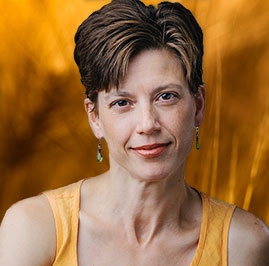|

| PRESENTATION DESCRIPTION |
|
As we continue to navigate ongoing stressors such as a global pandemic, systemic racism, divisive politics, and the personal challenges we face, it can be difficult to cultivate and sustain our individual and collective well-being and we might find ourselves more readily experiencing burnout. Yet, it is especially incumbent that as dance/movement therapists, we tend to our self-care and community care, so that we can effectively provide trauma informed care, engage in healing centered practices, and advance social justice. This workshop will begin with briefly examining the concepts of well-being, wellness, joyfulness, self-care, and community care through a cultural context. We will examine the emergence of self-care as an act of self-preservation as defined by Audre Lorde and will explore ways to cultivate a culture of inclusion in wellness spaces as discussed by Rev. angel Kyodo williams et al.
We will then verbally and non-verbally explore the experience of burnout, including precipitators, indicators, and the relationship between burnout and well-being. Next, we will focus on intrapersonal well-being through a meditation practice, bringing attention to our sensations, movements, images, feelings, and thoughts (SMIFT). Four pillars of psychological well-being as described by the Dalai Lama and Archbishop Desmond Tutu—perspective, humility, humor, and acceptance—will be explored through movement, art making, discussion, experiential learning, clinical case studies, and personal examples. The element of surprise and practices such as joyspotting and the Quieting Reflex will be introduced as a means of cultivating joyfulness and well-being. We will have an opportunity for personal reflections on individual and shared experiences of joyfulness and well-being throughout the workshop as we tend to both self-care and community care. The workshop will culminate with a discussion on current and new ways to apply these concepts and practices in our personal and professional lives, including challenges and successes.
|
| LEARNING OBJECTIVES |
-
Participants will develop their own operational understanding of joyfulness, well-being, self-care, and community care.
-
Participants will practice ways to tend to their individual and collective well-being through increasing awareness around sensations, movements, images, feelings, and thoughts (SMIFT) as well as practicing surprise, joyspotting, and the Quieting Reflex.
-
Participants will understand, experience, and apply several of the pillars of joy as described by the Dalai Lama and Archbishop Desmond Tutu, including perspective, humility, humor, and acceptance.
|
| CONTINUING EDUCATION |
|
1.25 ADTA CE, 1.25 NBCC CE, 1.25 NYLCAT CE
|
| PRESENTER INFORMATION |
 |
Jessica Young, MA, BC-DMT, LCPC, GL-CMA, is an Associate Professor at Columbia College Chicago. She is the 2020 recipient of the ADTA’s President’s Award and the Excellence in Education Award. The arc of her 20 year career includes serving those who are homeless with severe and chronic mental illness, educating graduate students in DMT, and teaching undergraduates how to tend to their own and others’ joyfulness and well-being. She has facilitated over 30 peer reviewed conference presentations in DMT, clinical supervision, motivational interviewing, harm reduction, and violence prevention. Her publications focus on the therapeutic movement relationship, DMT as a strengths-based practice, bridging DMT and drama therapy, and DMT education. She maintains a private practice and provides clinical supervision. |
| |
|
 |
Susan D. Imus, LCPC, BC-DMT, GL-CMA, is a practicing dmt in community health and wellness and an educator on the same topic through the Dance Center of Columbia College Chicago (CCC). She founded the Arts in Health minor at CCC where she chaired the Department of Creative Arts Therapy for 19 years. Susan also teaches in medical humanities at Rush Medical College. |
| |
|
| |
|
|